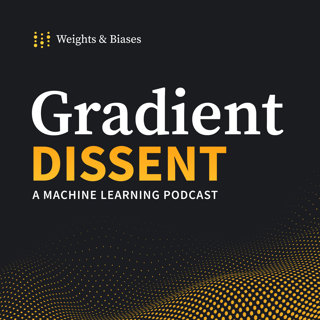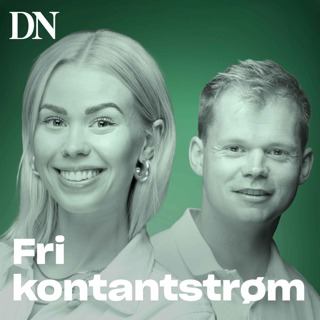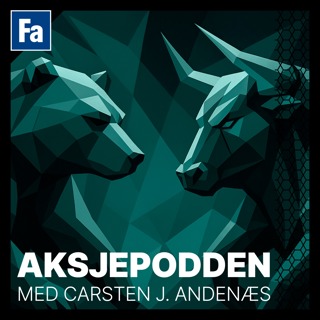
Peter Wang — Anaconda, Python, and Scientific Computing
Peter Wang talks about his journey of being the CEO of and co-founding Anaconda, his perspective on the Python programming language, and its use for scientific computing. Peter Wang has been developing commercial scientific computing and visualization software for over 15 years. He has extensive experience in software design and development across a broad range of areas, including 3D graphics, geophysics, large data simulation and visualization, financial risk modeling, and medical imaging. Peter’s interests in the fundamentals of vector computing and interactive visualization led him to co-found Anaconda (formerly Continuum Analytics). Peter leads the open source and community innovation group. As a creator of the PyData community and conferences, he devotes time and energy to growing the Python data science community and advocating and teaching Python at conferences around the world. Peter holds a BA in Physics from Cornell University. Follow peter on Twitter: https://twitter.com/pwang https://www.anaconda.com/ Intake: https://www.anaconda.com/blog/intake-... https://pydata.org/ Scientific Data Management in the Coming Decade paper: https://arxiv.org/pdf/cs/0502008.pdf Topics covered: 0:00 (intro) Technology is not value neutral; Don't punt on ethics 1:30 What is Conda? 2:57 Peter's Story and Anaconda's beginning 6:45 Do you ever regret choosing Python? 9:39 On other programming languages 17:13 Scientific Data Management in the Coming Decade 21:48 Who are your customers? 26:24 The ML hierarchy of needs 30:02 The cybernetic era and Conway's Law 34:31 R vs python 42:19 Most underrated: Ethics - Don't Punt 46:50 biggest bottlenecks: open-source, python Visit our podcasts homepage for transcripts and more episodes! www.wandb.com/podcast Get our podcast on these other platforms: YouTube: http://wandb.me/youtube Soundcloud: http://wandb.me/soundcloud Apple Podcasts: http://wandb.me/apple-podcasts Spotify: http://wandb.me/spotify Google: http://wandb.me/google-podcasts Join our bi-weekly virtual salon and listen to industry leaders and researchers in machine learning share their work: http://wandb.me/salon Join our community of ML practitioners where we host AMA's, share interesting projects and meet other people working in Deep Learning: http://wandb.me/slack Our gallery features curated machine learning reports by researchers exploring deep learning techniques, Kagglers showcasing winning models, and industry leaders sharing best practices. https://wandb.ai/gallery
22 Jan 202150min

Chris Anderson — Robocars, Drones, and WIRED Magazine
Chris shares his journey starting from playing in R.E.M, becoming interested in physics to leading WIRED Magazine for 11 years. His robot fascination lead to starting a company that manufactures drones, and creating a community democratizing self-driving cars. Chris Anderson is the CEO of 3D Robotics, founder of the Linux Foundation Dronecode Project and founder of the DIY Drones and DIY Robocars communities. From 2001 through 2012 he was the Editor in Chief of Wired Magazine. He's also the author of the New York Times bestsellers `The Long Tail` and `Free` and `Makers: The New Industrial Revolution`. In 2007 he was named to "Time 100," most influential men and women in the world. Links discussed in this episode: DIY Robocars: diyrobocars.com Getting Started with Robocars: https://diyrobocars.com/2020/10/31/getting-started-with-robocars/ DIY Robotics Meet Up: https://www.meetup.com/DIYRobocars Other Works 3DRobotics: https://www.3dr.com/ The Long Tail by Chris Anderson: https://www.amazon.com/Long-Tail-Future-Business-Selling/dp/1401309666/ref=sr_1_1?dchild=1&keywords=The+Long+Tail&qid=1610580178&s=books&sr=1-1 Interesting links Chris shared OpenMV: https://openmv.io/ Intel Tracking Camera: https://www.intelrealsense.com/tracking-camera-t265/ Zumi Self-Driving Car Kit: https://www.robolink.com/zumi/ Possible Minds: Twenty-Five Ways of Looking at AI: https://www.amazon.com/Possible-Minds-Twenty-Five-Ways-Looking/dp/0525557997 Topics discussed: 0:00 sneak peek and intro 1:03 Battle of the REM's 3:35 A brief stint with Physics 5:09 Becoming a journalist and the woes of being a modern physicis 9:25 WIRED in the aughts 12:13 perspectives on "The Long Tail" 20:47 getting into drones 25:08 "Take a smartphone, add wings" 28:07 How did you get to autonomous racing cars? 33:30 COVID and virtual environments 38:40 Chris's hope for Robocars 40:54 Robocar hardware, software, sensors 53:49 path to Singularity/ regulations on drones 58:50 "the golden age of simulation" 1:00:22 biggest challenge in deploying ML models Visit our podcasts homepage for transcripts and more episodes! www.wandb.com/podcast Get our podcast on these other platforms: YouTube: http://wandb.me/youtube Apple Podcasts: http://wandb.me/apple-podcasts Spotify: http://wandb.me/spotify Google: http://wandb.me/google-podcasts Join our bi-weekly virtual salon and listen to industry leaders and researchers in machine learning share their work: http://wandb.me/salon Join our community of ML practitioners where we host AMA's, share interesting projects and meet other people working in Deep Learning: http://wandb.me/slack Our gallery features curated machine learning reports by researchers exploring deep learning techniques, Kagglers showcasing winning models, and industry leaders sharing best practices. https://wandb.ai/gallery
14 Jan 20211h 3min

Adrien Treuille — Building Blazingly Fast Tools That People Love
Adrien shares his journey from making games that advance science (Eterna, Foldit) to creating a Streamlit, an open-source app framework enabling ML/Data practitioners to easily build powerful and interactive apps in a few hours. Adrien is co-founder and CEO of Streamlit, an open-source app framework that helps create beautiful data apps in hours in pure Python. Dr. Treuille has been a Zoox VP, Google X project lead, and Computer Science faculty at Carnegie Mellon. He has won numerous scientific awards, including the MIT TR35. Adrien has been featured in the documentaries What Will the Future Be Like by PBS/NOVA, and Lo and Behold by Werner Herzog. https://twitter.com/myelbows https://www.linkedin.com/in/adrien-treuille-52215718/ https://www.streamlit.io/ https://eternagame.org/ https://fold.it/ Topics covered: 0:00 sneak peek/Streamlit 0:47 intro 1:21 from aspiring guitar player to machine learning 4:16 Foldit - games that train humans 10:08 Eterna - another game and its relation to ML 16:15 Research areas as a professor at Carnegie Mellon 18:07 the origin of Streamlit 23:53 evolution of Streamlit: data science-ing a pivot 30:20 on programming languages 32:20 what’s next for Streamlit 37:34 On meditation and work/life 41:40 Underrated aspect of Machine Learning 443:07 Biggest challenge in deploying ML in the real world Visit our podcasts homepage for transcripts and more episodes! www.wandb.com/podcast Get our podcast on YouTube, Apple, Spotify, and Google! YouTube: http://wandb.me/youtube Apple Podcasts: http://wandb.me/apple-podcasts Spotify: http://wandb.me/spotify Google: http://wandb.me/google-podcasts Join our bi-weekly virtual salon and listen to industry leaders and researchers in machine learning share their work: http://wandb.me/salon Join our community of ML practitioners where we host AMA's, share interesting projects and meet other people working in Deep Learning: http://wandb.me/slack Our gallery features curated machine learning reports by researchers exploring deep learning techniques, Kagglers showcasing winning models, and industry leaders sharing best practices.
4 Des 202045min

Peter Norvig – Singularity Is in the Eye of the Beholder
We're thrilled to have Peter Norvig join us to talk about the evolution of deep learning, his industry-defining book, his work at Google, and what he thinks the future holds for machine learning research. Peter Norvig is a Director of Research at Google Inc; previously he directed Google's core search algorithms group. He is co-author of Artificial Intelligence: A Modern Approach, the leading textbook in the field, and co-teacher of an Artificial Intelligence class that signed up 160,000. Prior to his work at Google, Norvig was NASA's chief computer scientist. Peter's website: https://norvig.com/ Topics covered: 0:00 singularity is in the eye of the beholder 0:32 introduction 1:09 project Euler 2:42 advent of code/pytudes 4:55 new sections in the new version of his book 10:32 unreasonable effectiveness of data Paper 15 years later 14:44 what advice would you give to a young researcher? 16:03 computing power in the evolution of deep learning 19:19 what's been surprising in the development of AI? 24:21 from alpha go to human-like intelligence 28:46 What in AI has been surprisingly hard or easy? 32:11 synthetic data and language 35:16 singularity is in the eye of the beholder 38:43 the future of python in ML and why he used it in his book 43:00 underrated topic in ML and bottlenecks in production Visit our podcasts homepage for transcripts and more episodes! https://www.wandb.com/podcast Get our podcast on Apple, Spotify, and Google! Apple Podcasts: https://bit.ly/2WdrUvI Spotify: https://bit.ly/2SqtadF Google: https://tiny.cc/GD_Google We started Weights and Biases to build tools for Machine Learning practitioners because we care a lot about the impact that Machine Learning can have in the world and we love working in the trenches with the people building these models. One of the most fun things about these building tools has been the conversations with these ML practitioners and learning about the interesting things they’re working on. This process has been so fun that we wanted to open it up to the world in the form of our new podcast called Gradient Dissent. We hope you have as much fun listening to it as we had making it! Join our bi-weekly virtual salon and listen to industry leaders and researchers in machine learning share their research: https://tiny.cc/wb-salon Join our community of ML practitioners where we host AMA's, share interesting projects and meet other people working in Deep Learning: https://bit.ly/wb-slack Our gallery features curated machine learning reports by researchers exploring deep learning techniques, Kagglers showcasing winning models, and industry leaders sharing best practices. https://wandb.ai/gallery
20 Nov 202047min

Robert Nishihara — The State of Distributed Computing in ML
The story of Ray and what lead Robert to go from reinforcement learning researcher to creating open-source tools for machine learning and beyond Robert is currently working on Ray, a high-performance distributed execution framework for AI applications. He studied mathematics at Harvard. He’s broadly interested in applied math, machine learning, and optimization, and was a member of the Statistical AI Lab, the AMPLab/RISELab, and the Berkeley AI Research Lab at UC Berkeley. robertnishihara.com https://anyscale.com/ https://github.com/ray-project/ray https://twitter.com/robertnishihara https://www.linkedin.com/in/robert-nishihara-b6465444/ Topics covered: 0:00 sneak peak + intro 1:09 what is Ray? 3:07 Spark and Ray 5:48 reinforcement learning 8:15 non-ml use cases of ray 10:00 RL in the real world and and common uses of Ray 13:49 Ppython in ML 16:38 from grad school to ML tools company 20:40 pulling product requirements in surprising directions 23:25 how to manage a large open source community 27:05 Ray Tune 29:35 where do you see bottlenecks in production? 31:39 An underrated aspect of Machine Learning Visit our podcasts homepage for transcripts and more episodes! www.wandb.com/podcast Get our podcast on Apple, Spotify, and Google! Apple Podcasts: https://bit.ly/2WdrUvI Spotify: https://bit.ly/2SqtadF Google: http://tiny.cc/GD_Google Subscribe to our YouTube channel for videos of these podcasts and more Machine learning-related videos: https://www.youtube.com/c/WeightsBiases We started Weights and Biases to build tools for Machine Learning practitioners because we care a lot about the impact that Machine Learning can have in the world and we love working in the trenches with the people building these models. One of the most fun things about these building tools has been the conversations with these ML practitioners and learning about the interesting things they’re working on. This process has been so fun that we wanted to open it up to the world in the form of our new podcast called Gradient Dissent. We hope you have as much fun listening to it as we had making it! Join our bi-weekly virtual salon and listen to industry leaders and researchers in machine learning share their research: http://tiny.cc/wb-salon Join our community of ML practitioners where we host AMA's, share interesting projects and meet other people working in Deep Learning: http://bit.ly/wb-slack Our gallery features curated machine learning reports by researchers exploring deep learning techniques, Kagglers showcasing winning models, and industry leaders sharing best practices. https://app.wandb.ai/gallery
13 Nov 202035min

Ines & Sofie — Building Industrial-Strength NLP Pipelines
Sofie and Ines walk us through how the new spaCy library helps build end to end SOTA natural language processing workflows. Ines Montani is the co-founder of Explosion AI, a digital studio specializing in tools for AI technology. She's a core developer of spaCy, one of the leading open-source libraries for Natural Language Processing in Python and Prodigy, a new data annotation tool powered by active learning. Before founding Explosion AI, she was a freelance front-end developer and strategist. https://twitter.com/_inesmontani Sofie Van Landeghem is a Natural Language Processing and Machine Learning engineer at Explosion.ai. She is a Software Engineer at heart, with an absurd love for quality assurance and testing, introducing proper levels of abstraction, and ensuring code robustness and modularity. She has more than 12 years of experience in Natural Language Processing and Machine Learning, including in the pharmaceutical industry and the food industry. https://twitter.com/oxykodit https://spacy.io/ https://prodi.gy/ https://thinc.ai/ https://explosion.ai/ Topics covered: 0:00 Sneak peek 0:35 intro 2:29 How spaCy was started 6:11 Business model, open source 9:55 What was spaCy designed to solve? 12:23 advances in NLP and modern practices in industry 17:19 what differentiates spaCy from a more research focused NLP library? 19:28 Multi-lingual/domain specific support 23:52 spaCy V3 configuration 28:16 Thoughts on Python, Syphon, other programming languages for ML 33:45 Making things clear and reproducible 37:30 prodigy and getting good training data 44:09 most underrated aspect of ML 51:00 hardest part of putting models into production Visit our podcasts homepage for transcripts and more episodes! www.wandb.com/podcast Get our podcast on Apple, Spotify, and Google! Apple Podcasts: bit.ly/2WdrUvI Spotify: bit.ly/2SqtadF Google:tiny.cc/GD_Google We started Weights and Biases to build tools for Machine Learning practitioners because we care a lot about the impact that Machine Learning can have in the world and we love working in the trenches with the people building these models. One of the most fun things about these building tools has been the conversations with these ML practitioners and learning about the interesting things they’re working on. This process has been so fun that we wanted to open it up to the world in the form of our new podcast called Gradient Dissent. We hope you have as much fun listening to it as we had making it! Join our bi-weekly virtual salon and listen to industry leaders and researchers in machine learning share their research: tiny.cc/wb-salon Join our community of ML practitioners where we host AMA's, share interesting projects and meet other people working in Deep Learning: bit.ly/wb-slack Our gallery features curated machine learning reports by researchers exploring deep learning techniques, Kagglers showcasing winning models, and industry leaders sharing best practices. app.wandb.ai/gallery
29 Okt 202058min

Daeil Kim — The Unreasonable Effectiveness of Synthetic Data
Supercharging computer vision model performance by generating years of training data in minutes. Daeil Kim is the co-founder and CEO of AI.Reverie(https://aireverie.com/), a startup that specializes in creating high quality synthetic training data for computer vision algorithms. Before that, he was a senior data scientist at the New York Times. And before that he got his PhD in computer science from Brown University, focusing on machine learning and Bayesian statistics. He's going to talk about tools that will advance machine learning progress, and he's going to talk about synthetic data. https://twitter.com/daeil Topics covered: 0:00 Diversifying content 0:23 Intro+bio 1:00 From liberal arts to synthetic data 8:48 What is synthetic data? 11:24 Real world examples of synthetic data 16:16 Understanding performance gains using synthetic data 21:32 The future of Synthetic data and AI.Reverie 23:21 The composition of people at AI.reverie and ML 28:28 The evolution of ML tools and systems that Daeil uses 33:16 Most underrated aspect of ML and common misconceptions 34:42 Biggest challenge in making synthetic data work in the real world Visit our podcasts homepage for transcripts and more episodes! www.wandb.com/podcast Get our podcast on Apple, Spotify, and Google! Apple Podcasts: bit.ly/2WdrUvI Spotify: bit.ly/2SqtadF Google:tiny.cc/GD_Google We started Weights and Biases to build tools for Machine Learning practitioners because we care a lot about the impact that Machine Learning can have in the world and we love working in the trenches with the people building these models. One of the most fun things about these building tools has been the conversations with these ML practitioners and learning about the interesting things they’re working on. This process has been so fun that we wanted to open it up to the world in the form of our new podcast called Gradient Dissent. We hope you have as much fun listening to it as we had making it! Join our bi-weekly virtual salon and listen to industry leaders and researchers in machine learning share their research: tiny.cc/wb-salon Join our community of ML practitioners where we host AMA's, share interesting projects and meet other people working in Deep Learning: bit.ly/wb-slack Our gallery features curated machine learning reports by researchers exploring deep learning techniques, Kagglers showcasing winning models, and industry leaders sharing best practices. app.wandb.ai/gallery
16 Okt 202037min

Joaquin Candela — Definitions of Fairness
Joaquin chats about scaling and democratizing AI at Facebook, while understanding fairness and algorithmic bias. --- Joaquin Quiñonero Candela is Distinguished Tech Lead for Responsible AI at Facebook, where he aims to understand and mitigate the risks and unintended consequences of the widespread use of AI across Facebook. He was previously Director of Society and AI Lab and Director of Engineering for Applied ML. Before joining Facebook, Joaquin taught at the University of Cambridge, and worked at Microsoft Research. Connect with Joaquin: Personal website: https://quinonero.net/ Twitter: https://twitter.com/jquinonero LinkedIn: https://www.linkedin.com/in/joaquin-qui%C3%B1onero-candela-440844/ --- Topics Discussed: 0:00 Intro, sneak peak 0:53 Looking back at building and scaling AI at Facebook 10:31 How do you ship a model every week? 15:36 Getting buy-in to use a system 19:36 More on ML tools 24:01 Responsible AI at Facebook 38:33 How to engage with those effected by ML decisions 41:54 Approaches to fairness 53:10 How to know things are built right 59:34 Diversity, inclusion, and AI 1:14:21 Underrated aspect of AI 1:16:43 Hardest thing when putting models into production Transcript: http://wandb.me/gd-joaquin-candela Links Discussed: Race and Gender (2019): https://arxiv.org/pdf/1908.06165.pdf Lessons from Archives: Strategies for Collecting Sociocultural Data in Machine Learning (2019): https://arxiv.org/abs/1912.10389 Gender Shades: Intersectional Accuracy Disparities in Commercial Gender Classification (2018): http://proceedings.mlr.press/v81/buolamwini18a.html --- Get our podcast on these platforms: Apple Podcasts: http://wandb.me/apple-podcasts Spotify: http://wandb.me/spotify Google Podcasts: http://wandb.me/google-podcasts YouTube: http://wandb.me/youtube Soundcloud: http://wandb.me/soundcloud Join our community of ML practitioners where we host AMAs, share interesting projects and meet other people working in Deep Learning: http://wandb.me/slack Check out Fully Connected, which features curated machine learning reports by researchers exploring deep learning techniques, Kagglers showcasing winning models, industry leaders sharing best practices, and more: https://wandb.ai/fully-connected
1 Okt 20201h 19min





















